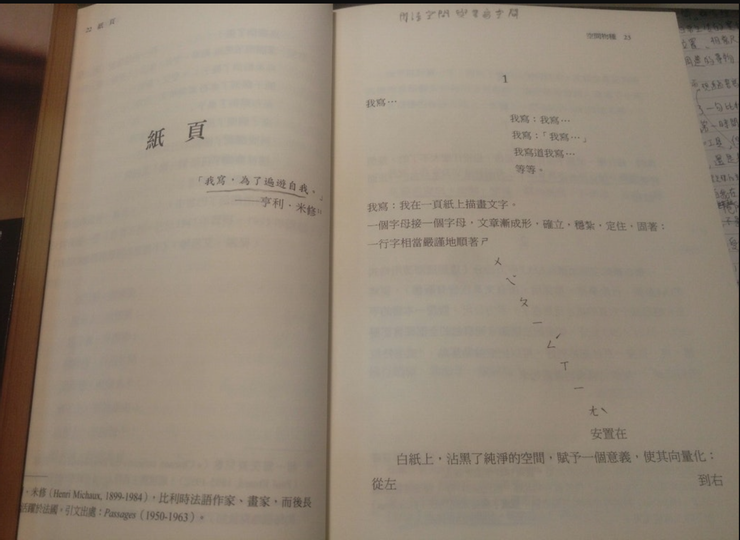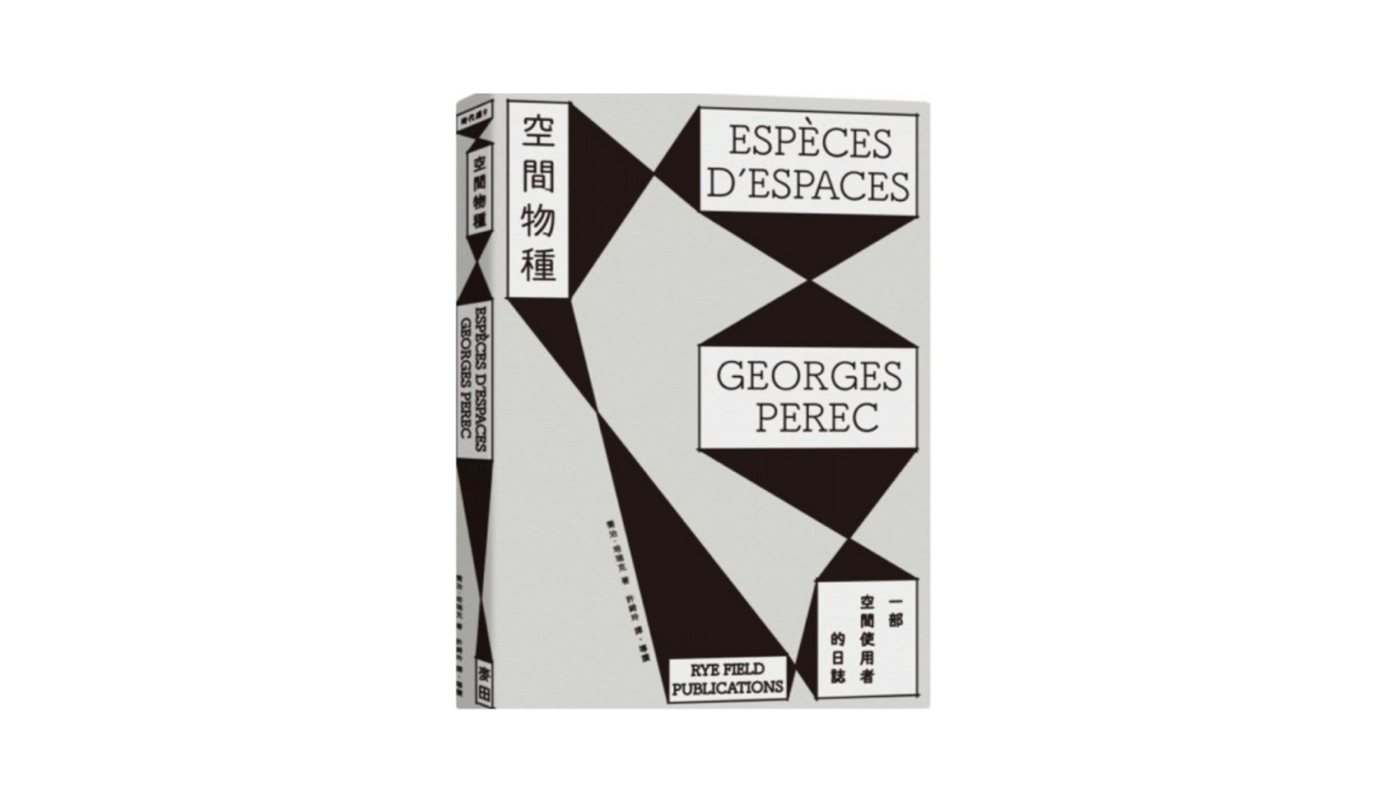
畢業於中正大學心理和哲學系,現就讀陽明交通大學社會與文化研究所。曾在關鍵評論網擔任書評專欄作者。文章主要投稿、刊登於 香港 微批paratext 或 虛詞.無形網站,多為文學、哲學類性質。另也有動漫評論發表於U-ACG。 信箱:f0921918962@gmail.com 信箱:f0921918962@gmail.com
In the written experiment, "space" is a question - reading various absent space-time in "Space Species"
From the first impression of reading, "Space Species" may feel like a difficult book. But for those who don't want to understand anything at all, "Space Species" may be a fascinating book, full of interesting associations and many "places" worth pondering.
This book is the French novelist Georges. The book published by Georges Perec in 1974 was originally inspired by the French thinker Paul. Written at the invitation of Paul Virilio. It is not a novel with a clear plot narrative, but a thought note about space, "place", or more like a collection of essays and sketches of various associations related to "space". The "space" he talks about is often not what we generally understand. It is a physical space with a definite geographical location and a certain size, but it has no substance, but it seems to be space-like, such as: memory, "self" or The so-called "inner space"...

The first chapter of "Species in Space" is "Paper Pages", and the author quotes the Belgian writer Henri. Mi Xiu's words were the opening words: "I write, in order to travel around myself." The first thing that reminds people is that writing is an idea for people to explore themselves, but the interesting thing is that under the operation behind Perek, He also makes people wonder, do people need to write to express themselves because they have self, or is it the other way around? It is not that writing is a tool to explore the self, but the self is the tool that writing uses to express itself, and it is writing that is the goal that the self is pursuing. It is in the process of writing and reading that people imagine some kind of space like "self". Before that, what writing shows may never be a "self", but a "space" in which the self desires to live.
Perek then wrote several pages of text (see Figure 1), which had little substantive meaning because they were a language that was constantly self-referential. In the first paragraph, he kept writing "I wrote", "I wrote" as if he wanted to write a lot, but in the end he didn't write anything except "I wrote". The following "I draw words on a page of paper. Letter after letter, the article gradually takes shape, establishes, stabilizes, settles, anchors..." The same is true for the "article" he ends up writing, and these are the words You have to write the discourse of an "article" yourself.
What Perek describes is like a void in language, a meaninglessness that exists in the meaning of language. It seems that what he wants us to read is not the meaning of the words themselves, but the space in which the words are located: the page. Echoing what the author wrote in the preface:
" To read the space ; this is because what we call everyday is by no means obvious, but opaque, or approaching a form of blindness, a state of anesthesia."
— — — — — — — — — — — — — — — — — — — — — — — — — — — — — — —
Due to copyright reasons, please visit the official website of Literary Laboratory Fanggezi for the full text.
URL: https://vocus.cc/article/61755b7efd89780001df8a70

Like my work?
Don't forget to support or like, so I know you are with me..
Comment…